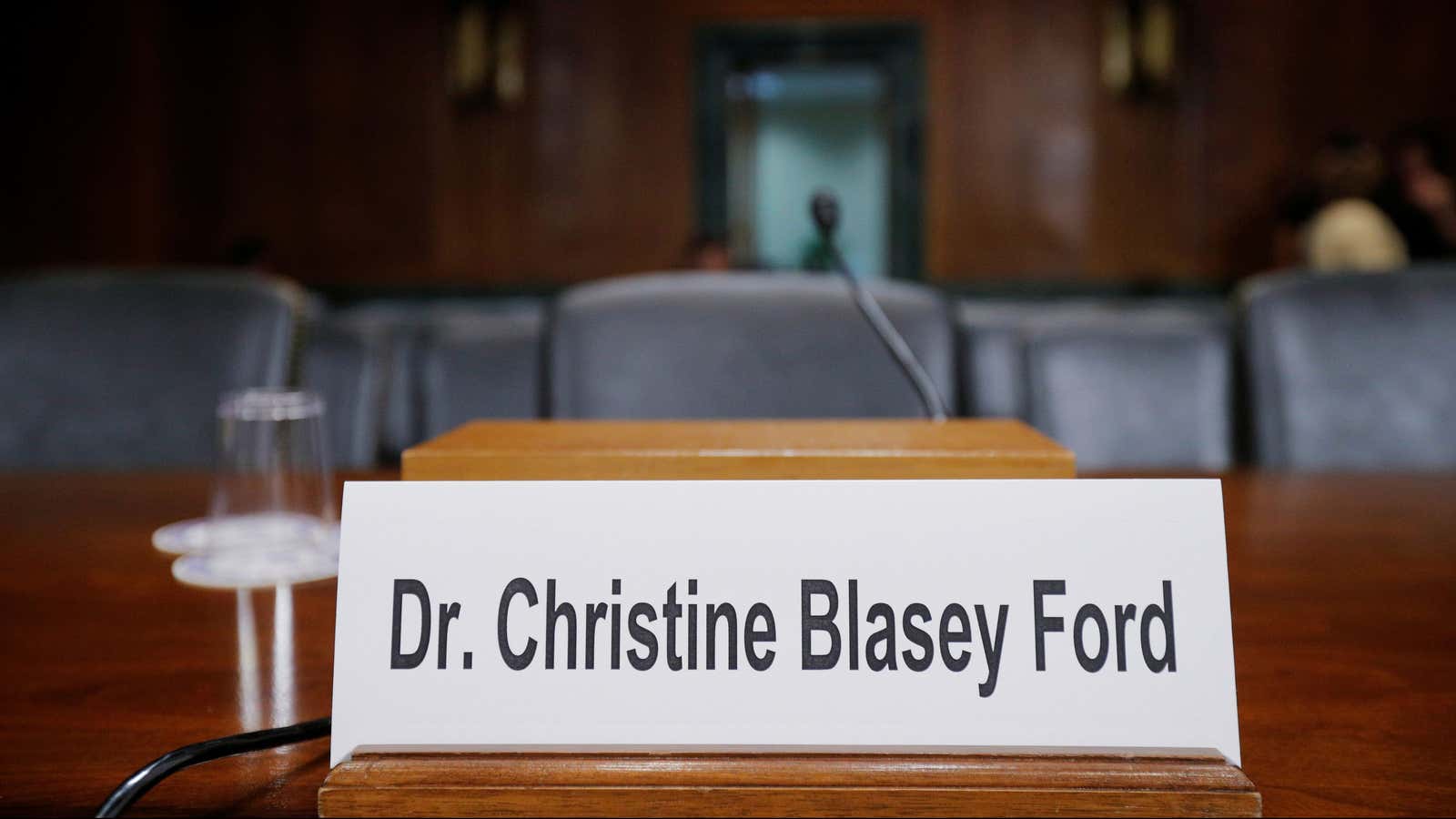“The worst thing you can do with words is to surrender to them,” George Orwell memorably wrote in Politics and the English Language. The Senate Judiciary Committee would do well to heed that lesson heading into today’s hearings on the sexual assault allegations against Brett Kavanaugh.
Consider the language that GOP senators have used to discuss the accusations brought by Christine Blasey Ford, who will testify today that Kavanaugh attempted to rape her at a high-school party in 1982. A Senate Judiciary Committee timeline describes the alleged assault as an “encounter,” noting that the staff of committee chair Chuck Grassley has interviewed two men who believe that they, not Kavanaugh, “had the encounter with Dr. Ford in 1982.” Kavanaugh himself landed upon the same word in his denial, writing in his pre-hearing remarks to the committee: “I never had any sexual or physical encounter of any kind with Dr. Ford.”
To call this a euphemism would be a gross understatement: The choice of the word “encounter” is a clear attempt to downplay the seriousness of the allegations, even as Kavanaugh denies them. It’s a move straight out of a very popular, and deeply misogynistic, playbook. In 2012, George Galloway, a former British MP, characterized the sexual assault allegations against Wikileaks founder Julian Assange as nothing more than “bad sexual etiquette.” When numerous sexual assault allegations came out against Hollywood producer Harvey Weinstein, his team issued a bizarrely-worded denial stating, “Any allegations of nonconsensual sex are unequivocally denied by Mr. Weinstein.” Not only does this phrasing neatly elide the word “rape,” but, as Geoffrey Pullam notes in the Chronicle of Higher Education, the phrase “any allegations” is particularly strange: “He knows that The New Yorker has obtained testimony containing multiple allegations of nonconsensual sex, including claims of rape, yet his wording implies that those allegations might not exist.”
The nomenclature surrounding sexual crimes can be difficult even for those who are not actively seeking to downplay them. Out of concern for legality and accuracy, as well as for victims, news outlets themselves often struggle to know which words to use: “Non-consensual sex?” “Sexual abuse?” “Sexual misconduct?” This language, too, is worthy of scrutiny and careful discussion.
Words matter. As Chloe Emmott writes in The Huffington Post, “By refusing to name rape as rape and sexual harassment as sexual harassment, we reduce the visibility of such crimes. We reduce their impact, we reduce their validity, we seek to airbrush our their existence, making it all too easy to claim women are ‘making a fuss over nothing’ and ‘exaggerating.’” As the hearings begin, let’s remember to use language that refuses to minimize the weight of the allegations against Kavanaugh, the better to communicate to all victims of sexual assault that their word carries weight.
